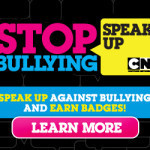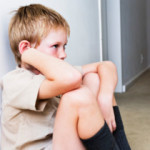Rosalind Wiseman's Blog, page 40
March 15, 2012
Two New Anti-Bullying Documentaries To Air This Month
 If we want to stop bullying, we must speak up, and two new anti-bullying documentaries premiering this month will help all of us do just that:
If we want to stop bullying, we must speak up, and two new anti-bullying documentaries premiering this month will help all of us do just that:
Watch the "Stop Bullying: Speak Up" special presentation this Sunday, March 18, at 5:30/4:30c on Cartoon Network.
In the meantime, send questions about bullying to http://bit.ly/wyaPEe – Rosalind will be answering viewer questions after the show.
And on March 30th the powerful feature documentary "Bully" hits theaters nation-wide.
You can read more about both these important films in this article by New York Times blogger KJ Dell'Antonia.
March 7, 2012
Family Circle: Ask Rosalind, March 2012
 How do you help your son when the bully is his best friend? Rosalind advises a parent on this challenging dilemma in the March issue of Family Circle. Download the latest copy of Ask Rosalind here…
How do you help your son when the bully is his best friend? Rosalind advises a parent on this challenging dilemma in the March issue of Family Circle. Download the latest copy of Ask Rosalind here…
Owning Up Helps Minnesota Teacher Change School Culture
 Minnesota Teacher of the Year candidate, Lisa Torbeson, found breaking the cycle of abuse among her students a challenging task. But ingenuity, "Owning Up," and some tips from Rosalind helped her turn around her program, and her students. Read the whole story here…
Minnesota Teacher of the Year candidate, Lisa Torbeson, found breaking the cycle of abuse among her students a challenging task. But ingenuity, "Owning Up," and some tips from Rosalind helped her turn around her program, and her students. Read the whole story here…
March 1, 2012
It's Never Ok to Say Gay When You Really Mean Stupid
 Imagine you're driving carpool. Your child is sitting shotgun, constantly scanning the radio for everyone's perfect song. The other three kids are rehashing their day. Everything is good until you hear one of the boys say to another, "Dude, you better improve your basketball skills! Do you have any idea how gay you were in PE class today! If it gets any worse you're going to have go play on the girls team!" You immediately tense, look in the rearview mirror to gauge the kids' reaction, and wonder if you should say something. In that instant several thoughts go through your head. You know it was bad but kids say words like that all the time. All the other kids seem to be laughing. If you say something you're going to embarrass your child. It's inappropriate to set rules for other people's kids. And then the moment passes and you feel like you've lost your opportunity.
Imagine you're driving carpool. Your child is sitting shotgun, constantly scanning the radio for everyone's perfect song. The other three kids are rehashing their day. Everything is good until you hear one of the boys say to another, "Dude, you better improve your basketball skills! Do you have any idea how gay you were in PE class today! If it gets any worse you're going to have go play on the girls team!" You immediately tense, look in the rearview mirror to gauge the kids' reaction, and wonder if you should say something. In that instant several thoughts go through your head. You know it was bad but kids say words like that all the time. All the other kids seem to be laughing. If you say something you're going to embarrass your child. It's inappropriate to set rules for other people's kids. And then the moment passes and you feel like you've lost your opportunity.
You don't say anything. Many well-meaning parents can relate to this scenario. But the hard truth is that this is the adult behavior that supports bullying. These are the actions that come across as not wanting to be "the parent" in difficult situations because you're afraid your child will get angry with you.
If you want to do your part to stop bullying, you have to understand the dynamics at play in that car and you have to say something. You have to clearly communicate what you stand for. So here are some suggestions for how to manage the situation.
When you hear the rude comment, take a deep breath, focus on what you're about to say as you pull the car over, and put it in park. Take your seat belt off, and turn to face the kids in the back seat, while ignoring your son's silent begging or death stares. As you make eye contact with all of them say,
You: Josh, I just overheard you tell Mike that he was gay to insult the way he's playing basketball.
Josh: It's just what we say! It doesn't mean the same thing now! Mike doesn't mind do you?"
Mike: "No, they're just messing with me. I know they don't mean it."
You: Here's the deal. Using words like gay, or like a girl to put someone down is just unacceptable.
Josh: But it's not our fault if the girls are terrible at basketball that's just a fact! And gay just means stupid.
You: That's not the issue. The issue is using those words to make someone feel worthless and not as good as you are.
Josh gives you the stare that you are crazy and annoying. Your son stares out the window pretending he was born into a different family.
If any of you want to talk to your parents about what I just said, please do so. Everybody got it? Good—anyone want to drop by the park on the way home?
It's also important to end by encouraging the kids to talk to their parents about what you said. Not only because it's smart to be transparent when you have these teachable moments with other people's children but it also protects you from any of the kids coming home and accusing you of "screaming and totally freaking out" to their parents.
By the way, this strategy works any time kids say inappropriate and/or mean things around you. I had one mother use this strategy in the car after years of silently putting up with her daughter and her friends trashing other girls. It was important for her to realize how her silence had contributed to the girls' feeling that they could be so mean and cruel to others. Once she stood her ground, the girls' behavior improved at home and school.
And one last point. Yes, in the moment when we speak out, we will absolutely embarrass children. In the short term, they won't like us one bit for getting involved. But it's only in these moments that our kids see evidence of what our values look like in action, that they really get what's important to us. They understand that they have a mom or dad who is willing and able to take a public stand when you see people being cruel. That's a lesson they can take with them for a lifetime.
**First published on Family Circle Momster.
It’s Never Ok to Say Gay When You Really Mean Stupid
 Imagine you’re driving carpool. Your child is sitting shotgun, constantly scanning the radio for everyone’s perfect song. The other three kids are rehashing their day. Everything is good until you hear one of the boys say to another, “Dude, you better improve your basketball skills! Do you have any idea how gay you were in PE class today! If it gets any worse you’re going to have go play on the girls team!” You immediately tense, look in the rearview mirror to gauge the kids’ reaction, and wonder if you should say something. In that instant several thoughts go through your head. You know it was bad but kids say words like that all the time. All the other kids seem to be laughing. If you say something you’re going to embarrass your child. It’s inappropriate to set rules for other people’s kids. And then the moment passes and you feel like you’ve lost your opportunity.
Imagine you’re driving carpool. Your child is sitting shotgun, constantly scanning the radio for everyone’s perfect song. The other three kids are rehashing their day. Everything is good until you hear one of the boys say to another, “Dude, you better improve your basketball skills! Do you have any idea how gay you were in PE class today! If it gets any worse you’re going to have go play on the girls team!” You immediately tense, look in the rearview mirror to gauge the kids’ reaction, and wonder if you should say something. In that instant several thoughts go through your head. You know it was bad but kids say words like that all the time. All the other kids seem to be laughing. If you say something you’re going to embarrass your child. It’s inappropriate to set rules for other people’s kids. And then the moment passes and you feel like you’ve lost your opportunity.
You don’t say anything. Many well-meaning parents can relate to this scenario. But the hard truth is that this is the adult behavior that supports bullying. These are the actions that come across as not wanting to be “the parent” in difficult situations because you’re afraid your child will get angry with you.
If you want to do your part to stop bullying, you have to understand the dynamics at play in that car and you have to say something. You have to clearly communicate what you stand for. So here are some suggestions for how to manage the situation.
When you hear the rude comment, take a deep breath, focus on what you’re about to say as you pull the car over, and put it in park. Take your seat belt off, and turn to face the kids in the back seat, while ignoring your son’s silent begging or death stares. As you make eye contact with all of them say,
You: Josh, I just overheard you tell Mike that he was gay to insult the way he’s playing basketball.
Josh: It’s just what we say! It doesn’t mean the same thing now! Mike doesn’t mind do you?”
Mike: “No, they’re just messing with me. I know they don’t mean it.”
You: Here’s the deal. Using words like gay, or like a girl to put someone down is just unacceptable.
Josh: But it’s not our fault if the girls are terrible at basketball that’s just a fact! And gay just means stupid.
You: That’s not the issue. The issue is using those words to make someone feel worthless and not as good as you are.
Josh gives you the stare that you are crazy and annoying. Your son stares out the window pretending he was born into a different family.
If any of you want to talk to your parents about what I just said, please do so. Everybody got it? Good—anyone want to drop by the park on the way home?
It’s also important to end by encouraging the kids to talk to their parents about what you said. Not only because it’s smart to be transparent when you have these teachable moments with other people’s children but it also protects you from any of the kids coming home and accusing you of “screaming and totally freaking out” to their parents.
By the way, this strategy works any time kids say inappropriate and/or mean things around you. I had one mother use this strategy in the car after years of silently putting up with her daughter and her friends trashing other girls. It was important for her to realize how her silence had contributed to the girls’ feeling that they could be so mean and cruel to others. Once she stood her ground, the girls’ behavior improved at home and school.
And one last point. Yes, in the moment when we speak out, we will absolutely embarrass children. In the short term, they won’t like us one bit for getting involved. But it’s only in these moments that our kids see evidence of what our values look like in action, that they really get what’s important to us. They understand that they have a mom or dad who is willing and able to take a public stand when you see people being cruel. That’s a lesson they can take with them for a lifetime.
**First published on Family Circle Momster.
February 13, 2012
Everybody Knows Somebody: National Eating Disorders Awareness Week 2012
 I walked into the gym in a dizzy haze. I had just run from my house, down the road, up the road, through the park, and into the gym. I hurriedly raced by the front desk staff, up the stairs, flung open the locker room doors, and went straight to the scale. I bargained with myself along the way, "Please don't be too high, please don't be too high." I made grandiose promises that I never kept (read: if I don't weigh too much, I promise I'll eat more.) The number was too high. I stepped on and off the scale like a metronome. The number didn't budge. I gave up. I couldn't leave the gym until it was lower.
I walked into the gym in a dizzy haze. I had just run from my house, down the road, up the road, through the park, and into the gym. I hurriedly raced by the front desk staff, up the stairs, flung open the locker room doors, and went straight to the scale. I bargained with myself along the way, "Please don't be too high, please don't be too high." I made grandiose promises that I never kept (read: if I don't weigh too much, I promise I'll eat more.) The number was too high. I stepped on and off the scale like a metronome. The number didn't budge. I gave up. I couldn't leave the gym until it was lower.
The next hour went something like this. Run, weigh myself. Run, weigh myself. Run, weigh myself. You get the point. When the room was spinning and the people were blurry, the number was finally in an acceptable range (read: depletion of water, not actual weight loss.) Relieved, I left the locker room and headed to the water fountain.
On the way out, a random stranger said she wished she looked like me. At the water fountain, a guy I know said, "You're not done, are you?" Dumbfounded, I glared at him. He continued, "You better get back on that treadmill, slacker." I didn't get back on the treadmill, but instead of my planned leisurely stroll home, I ran back through the park, down the road, up the road, and through my front door. Although he was kidding, it was almost paralyzing to think someone thought of me as a "slacker." I had to prove him wrong.
Although that incident was years ago, I clearly remember that day because it was my birthday. In order to be able to celebrate my birthday, which always involved an anxiety-provoking food based gathering that was never worth it, the number on the scale had to grant me permission. That number determined the quality of each day and was the only measure of my self-worth for far too long.
February 26th – March 3rd is National Eating Disorders Awareness Week (NEDAW) and this year's theme is "Everybody Knows Somebody." I chose to share that particular story because the people at the gym had no idea what I was going through. They also didn't know their words completely fueled my anorexia. Many people made ridiculously asinine comments to me that were not out of haste, but sheer ignorance. At my absolute sickest, I was constantly complimented. Looking at pictures from those days makes me shudder. I am one of the few fortunate ones that struggled with an eating disorder for that long and can say "those days."
Eating disorders don't know race, class, age, gender or size. They affect millions of people and statistically speaking, you probably know someone who is suffering. It's the person at the gym that works out just a little bit harder than everyone else. It's your neighbor who is always on a crazy diet and talks about how fat she is to anyone who will listen. It's the man who is obsessed with running and becomes anxious and intolerable if he can't fit a workout in. It's your daughter's friend who silently slips away from the lunch table everyday to find an empty bathroom to purge in. It's the boy on the wrestling team that runs for hours in multiple layers of clothing to make weight. Or, it's the last person you would ever suspect.
Many people remain clueless about eating disorders and are plagued with misinformation due to our toxic culture that bombards men, women, boys, and girls with a steady flow of messages that say, "you're not good enough." Children are taught from a heartbreakingly young age to hate their bodies. Our society breeds, perpetuates, and normalizes eating disorders on an astounding level. Nobody is immune. It's not OK.
This is the third year in a row I have shared a piece of my journey for NEDAW. It's not easy to write about, talk about, and honestly, sharing any part of it gives me a week long anxiety buzz. However, it's worth it. In order to reduce the prevalence of eating disorders, there has to be a heightened level of awareness. Many families live in denial, educators aren't trained, and I can't tell you how many completely clueless doctors there are. Again, not OK.
I recovered backwards; I talked the talk before I walked the walk. I lived in a comfortable state of denial for over a decade and the road to recovery wasn't easy. It took a lot of treatment that didn't work until I allowed it too. I had no concept of "normal" and had become a master manipulator when it came to food or exercise. I finally realized that in order to disrupt "my" normalcy, I had to get out of my environment. I relearned how to live at The Renfrew Center, a treatment facility for eating disorders. During that time, anger and advocacy helped me tremendously.
We have to fight back. We have to find and use our voices. The power to evoke change truly has strength in numbers. If you've struggled with an eating disorder, share your story. Educate others to help others. If you are concerned about somebody you think may have one, you owe it to him or her to educate yourself and talk about it. It's always difficult. There will never be a "perfect" time. You may stumble on your words and it may all come out wrong. But say it anyway. And say it again, and again (we deny everything, trust me.) You never know, it could save their life.
For more information about eating disorders, please visit The National Eating Disorders Association
Julia V. Taylor
Below are the links to my previous EDAW blogs:
2010 – "It's Time to Talk About It"
2011 – "How Talking the Talk Helped me Walk the Walk"
February 10, 2012
Rosalind and Jane Lynch Advise Parents, "Don't Freak Out."
Rosalind and "Glee" star Jane Lynch come together for LG's Text Ed Council to offer ways parents can communicate with kids on the safe and ethical use of technology.
[image error]video platformvideo managementvideo solutionsvideo player
February 2, 2012
ALA Honors Boys, Girls & Other Hazardous Materials
 We are excited to announce that Rosalind's young adult novel, Boys, Girls & Other Hazardous Materials was named among the American Library Association's Most Popular Paperbacks for Young Adults. It is also now available in paperback, and you can snag a copy on Amazon for less than $5!
We are excited to announce that Rosalind's young adult novel, Boys, Girls & Other Hazardous Materials was named among the American Library Association's Most Popular Paperbacks for Young Adults. It is also now available in paperback, and you can snag a copy on Amazon for less than $5!
January 27, 2012
Why Don't Boys Want To Dance?
 Whether you have a son or a daughter, one of the joys of parenting is supporting your child in the things they love to do. My third-grade son has always loved to dance, and his enthusiasm for the activity has always been just as important if not more so, than his actual talent. However, his zeal was recently thwarted when we enrolled him in a hip-hop class where he ended up being the only boy in sea of twenty girls in sparkly Converse shoes demanding to dance to the latest Katie Perry song. Feeling out of place, he left in tears and has not wanted to go back since.
Whether you have a son or a daughter, one of the joys of parenting is supporting your child in the things they love to do. My third-grade son has always loved to dance, and his enthusiasm for the activity has always been just as important if not more so, than his actual talent. However, his zeal was recently thwarted when we enrolled him in a hip-hop class where he ended up being the only boy in sea of twenty girls in sparkly Converse shoes demanding to dance to the latest Katie Perry song. Feeling out of place, he left in tears and has not wanted to go back since.
Our experience in the class really got me thinking about my own experiences as a competitive athlete growing up, and how this has influenced my role as an advocate for girls, a teacher, and a mom. I am in my early 40's and I vividly recall my experience as the only girl under the supervision of a sexist tennis coach. I was always put on the last court and it was clearly a punishment for the boys if they had to play with me. I hated that coach, but it also contributed to my intensifying dislike of tennis. Today it's much different. If you have a daughter and she likes to do things that are typically "boy," you are probably prepared to look for a class or a program that makes her feel comfortable. Not only that, but the coach or teacher is usually aware of the particular challenges of being one among many and goes out of their way to make her feel comfortable. I can think of countless soccer teams with ten boys and one girl where the adults make a point of including the girl and treating her equally. And even as the girls get older and move into single sex teams, there's still recognition that if a girl wants to participate, they have the right to be there.
But apparently, this is not the case if you're a boy.
What amazes me is the lack of care and consideration we have towards our sons in similar situations. "Boys don't like to dance," "Boys don't like to read," "Boys don't like to be in plays," are just a few examples I have heard repeatedly as a teacher, writer, and parent. As if we, the adults, are not the ones responsible for creating the very environments where our boys would feel comfortable and included.
In my son's case, he lasted two classes. I simply couldn't believe my eyes as he was excluded and ignored by the teacher and not surprisingly, therefore, the students. He sat by himself fighting back tears. When I talked to the staff, they informed me that they have problems with boys all the time. When I asked if they even think about why they are having problems retaining boys, the person shrugged and said, "Boys don't like to dance." Well mine did. That is until he took that class.
So the question to all of us is why we are so committed to forcing boys out of arenas that are typically reserved for girls?
At least with girls, it is understood that the world can be an exclusive place for them and they have the language and voice to speak out against it. Boys usually don't know this, and in their ignorance learn to feel ashamed for anything they do that is remotely girl-like.
As my son and I drove home after the hip hop debacle and I told him we would withdraw him from the class, I asked him to think about this experience if he was ever in the situation where there was one girl with a group of boys. He nodded and then said, "I just want to go home."
I waited to reinforce the lesson another day, and instead we just went home to listen to Grandmaster Flash and Mary J. Blige so he could reclaim the music he loves.
First published on Family Circle Momster.
November 29, 2011
Should You Post Photos of Other People's Children Online?
 This was the question asked to Farhad Manjoo and Emily Yoffe on their Slate Podcast, Manners for the Digital Age. The situation was a child's birthday party where the host posted pictures of the children on her personal blog. After the party, a mother of a child who attended called the host to request that pictures including her child be removed.
This was the question asked to Farhad Manjoo and Emily Yoffe on their Slate Podcast, Manners for the Digital Age. The situation was a child's birthday party where the host posted pictures of the children on her personal blog. After the party, a mother of a child who attended called the host to request that pictures including her child be removed.
Many listeners believed that this mother's request was reasonable. Some people believed that this mother didn't have to give a reason. She, as the mother, wanted the pictures down so that's what should happen. Others believed that posting the pictures violated her child's legal right to privacy.
On the face of it, I can understand why some parents feel that the party host was wrong to post the pictures without the other parents consent. As the parent, it seems entirely reasonable that you should be the one to decide when and where your child's image is made public.
But let's face it. When was the last time you went to a kid's birthday party when most of the people there weren't whipping out their cell phones and taking pictures? All it takes is one really cute picture for parents to post it on every social networking site they use.
We don't have social events without cameras anymore. I can think of several social situations where my children's pictures were posted on people's Facebook pages without asking my permission. End-of-year soccer pizza dinners, Halloween parties, and playing in someone's backyard immediately come to mind.
Regardless of how we feel about it, the reasonable expectation should be our participation in social events will be posted on-line rather than not.
Majoo and Joffe also asked Carolyn E. Wright, a lawyer who specializes in photography and law, to clarify how one's right to privacy is defined when your picture is taken. According to Wright, you're legally allowed to take someone's picture unless there is an expectation of privacy. Walking in the street, reading a book in your living room with the blinds open, and people taking pictures at a party are all scenarios where there is no expectation of privacy. If you're in a public bathroom, reading a book in your living room with the blinds closed, or hanging out at someone's house where there are no cameras, there is an expectation of privacy.
Important to note is that the law defines the privacy of the moment when the picture is taken; not when it's posted on line. So clearly the host was not legally violating the child's right to privacy when she took the picture or posted it later on her blog. But the higher goal is how to have good relations with other parents and respect their wishes for their child. To that end, here's my suggestion for addressing this problem:
If you are the host:
Let people know that you plan to post pictures of the party so if anyone objects, they can let you know. When pictures are taken, the child can be removed from view. (If you're saying that removing the child socially penalizes the child, that's being unrealistic. If the parent really doesn't want his child in pictures then this problem is going to come up repeatedly. In that case, the parent who doesn't want the pictures taken has to communicate that to their child).
If you are the parent who doesn't want things posted:
Like any parental concern you have when your child is in someone else's care, you need to let them know what's going on. As was mentioned in the podcast, think of it as if your child has an allergy. Just like you would ask if there are nuts in the food, ask the host if they plan to take pics. If so, just ask that your child be seated outside the camera view.
This may feel like an example of technology changing the basic rules of conduct in uncomfortable ways. While these shifts are undoubtedly true, it's critical to take the time to understand the context for how these changes occur and what's reasonable to expect from each other. And what doesn't change is the more important value that we place on being considerate of each other and valuing our different perspectives. If we operate from that place, our relationships with each other will be strong and our children taken care of in the right way.




